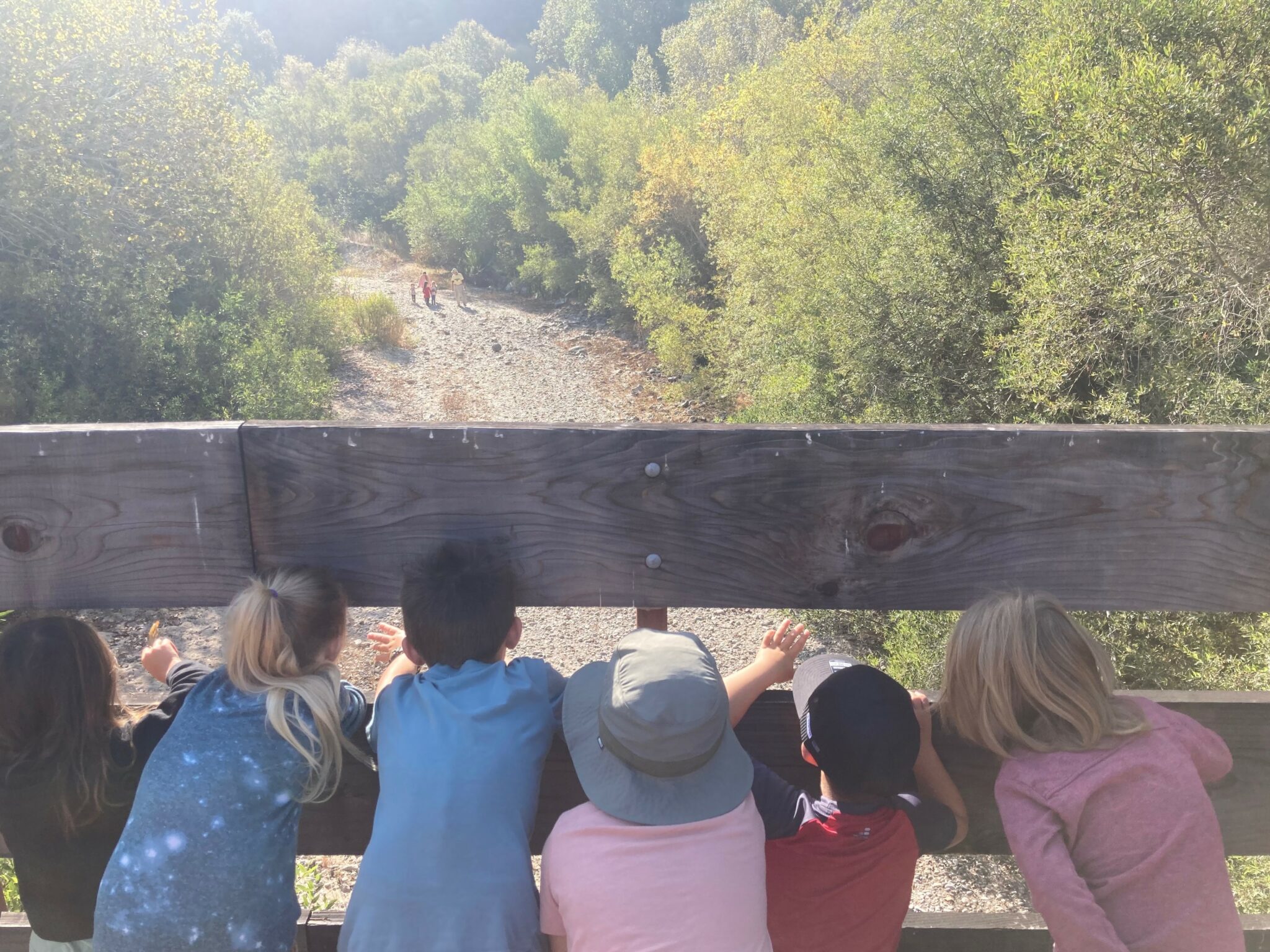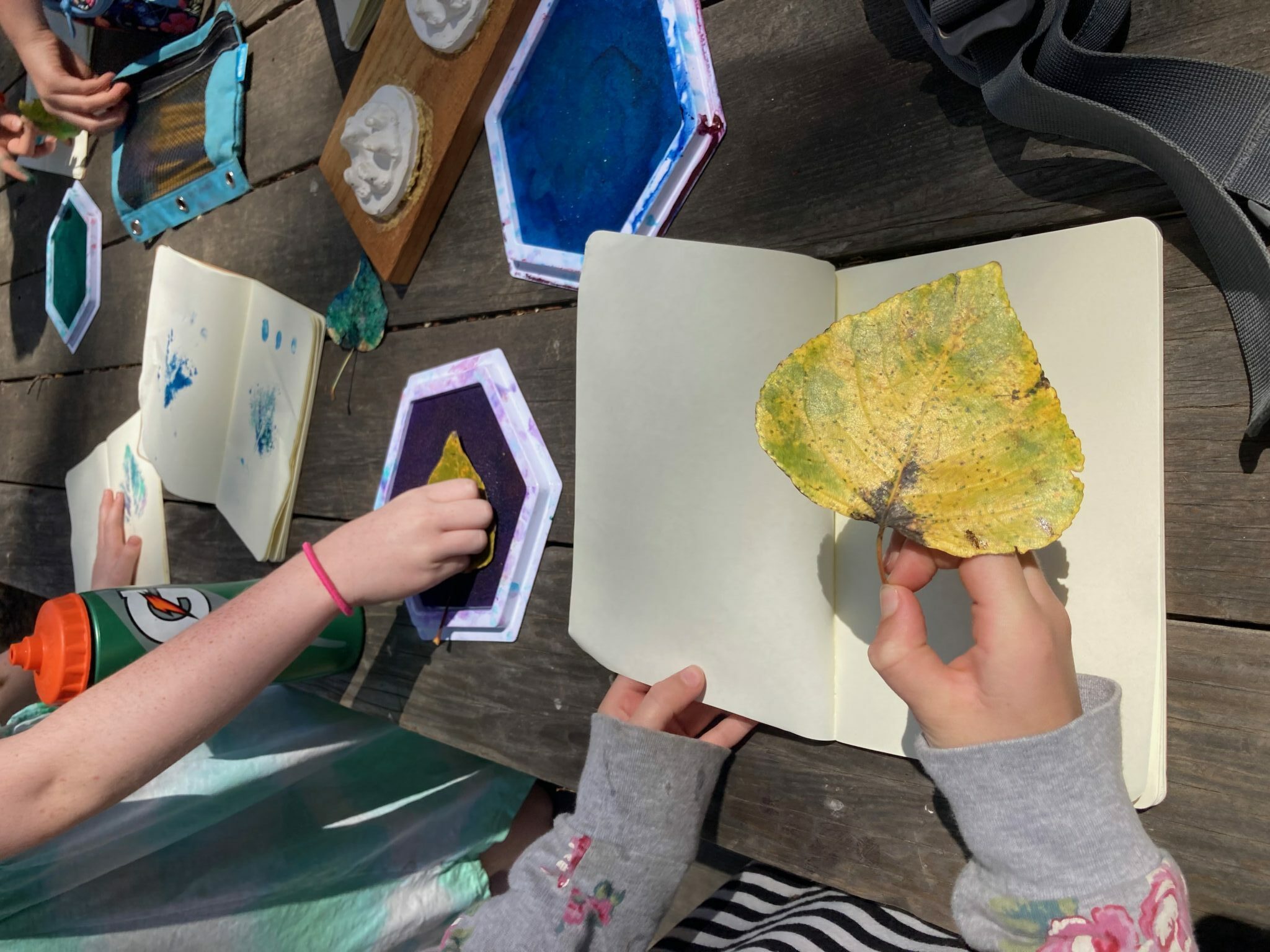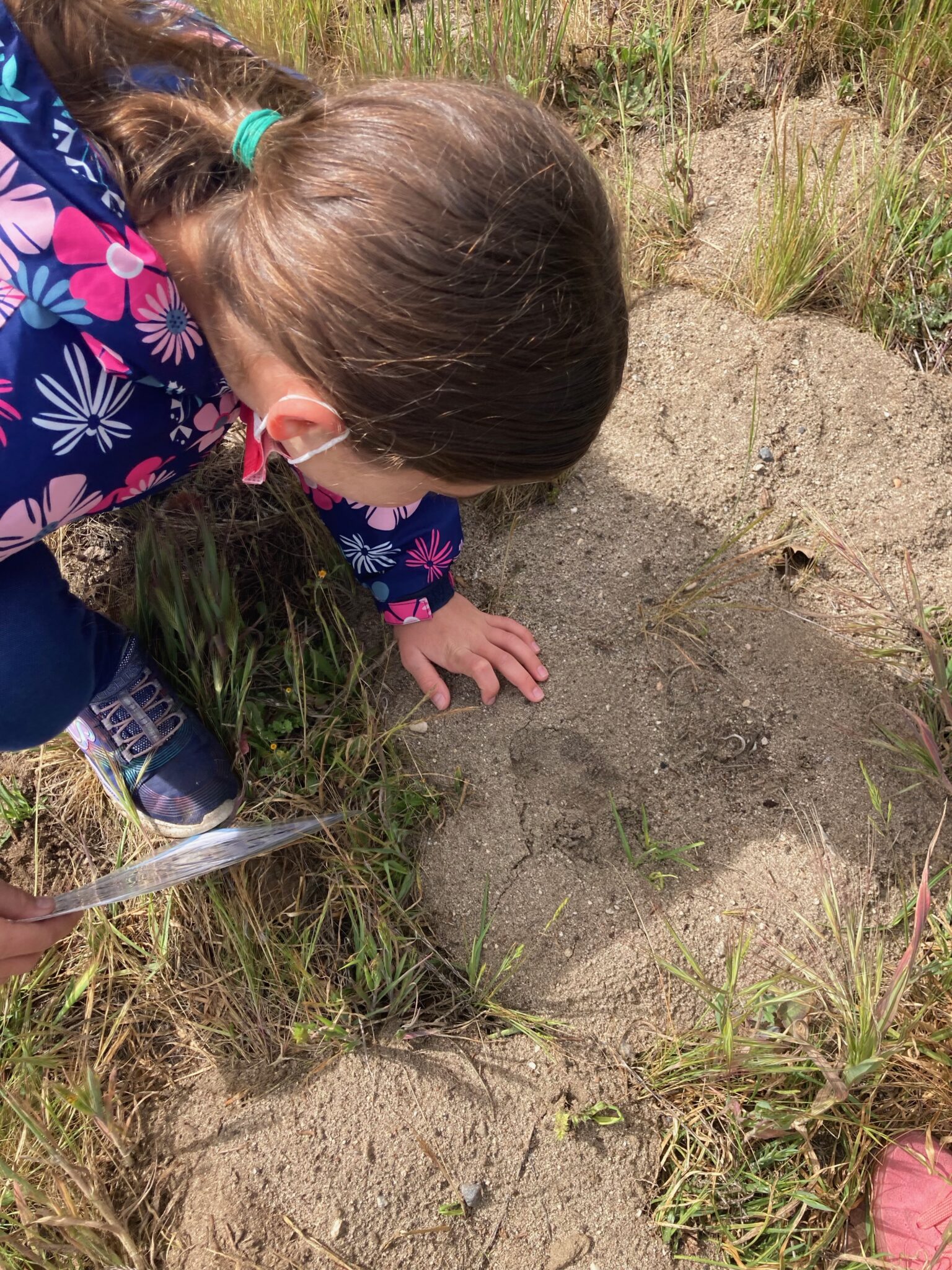Children on the bridge over the Carmel River at Rancho Canada wave to their peers walking the river bed. Photo by Kirsten Stember.

Environmental Education Program Immerses Children in Nature
February 14, 2023
By Alix Soliman, Communications & Outreach Coordinator
Since 1999, the Santa Lucia Conservancy has offered free field trips through our Environmental Education Program. Using a place-based, experiential learning approach, the program connects students in Monterey County with the outdoors and promotes ecological literacy, environmental stewardship, and social-emotional learning through classes that explore subjects such as the structure of a watershed, species adaptations and life cycles, and the secrets of old growth redwood forests.
Spending time in nature has been shown to provide far-reaching mental health benefits like improving attention spans, reducing stress, increasing social connections, and boosting creativity. At the same time, studies find that the pandemic continues to have downstream impacts on the academic performance and mental health of youth, particularly those in underserved communities. According to the California Assessment of Student Performance and Progress (CAASPP), students are falling behind in both English language arts/literacy (ELA) and mathematics statewide. Our collaborating teachers express concern over learning gaps accompanied by an increase in student depression and anxiety.
In response to these issues, we set four main objectives for the Environmental Education Program in 2022:
1) Increase access to high-quality environmental education for underserved youth
2) Improve mental health and wellness for children through exposure to the outdoors
3) Adapt existing courses to incorporate eco-literacy and social-emotional learning
4) Develop new curriculum covering the Carmel River Watershed in-depth
Thanks to grants from the Carmel River Watershed Conservancy, the Pebble Beach Company Foundation, and the Community Foundation for Monterey County, we accomplished these goals, serving 127 classes with a total of 3,042 participants. We were able to provide bussing scholarships to all schools in need, with 43% of our classes coming from disadvantaged schools in Monterey County. Our educators created a brand new course, “watershed structure and function,” and developed a former “guided nature walk” into a “habitat exploration” class at our new Rancho Canada education site.

Students create leaf stamps and rubbings to record their experience in the field. Photo by Kirsten Stember.
“It is an incredible job to connect children with nature. It’s amazing to watch them observe, use their senses, and watch the lightbulbs go off as they discover the connections in our world,” said Lead Environmental Educator Kirsten Stember, who has led the program since its inception and has designed experiential programs for Monterey Peninsula Regional Park District, Pt. Lobos State Natural Reserve, Big Sur Charter School, and MEarth.
During the introduction of each class, the educators define and break down vocabulary words for the day. Students learn terms such as biotic, abiotic, condensation, and interdependence. We incorporated nature journaling into many of our existing classes and provided paper, clipboards, and art materials. As classes walked the trails, our educators paused often to focus on activities that teach children to become keen observers, encouraging students to record their experience and express themselves through sketches, notes, leaf rubbings, and poems.
“They are given the opportunity to truly be immersed as they stand in the middle of a redwood grove and look up, listen to the creek and bird song, inspect owl pellets, track mammal prints, and find salamanders under logs,” Stember said.

A student compares a mammal track with her own hand and a tracking guide handout. Photo by Kirsten Stember.
Classes that go through our program explore what it means to have a healthy ecosystem, how native plants create homes for wildlife, and learn skills in scientific observation and outdoor exploration. Children gain an understanding of the watershed in which they live and an appreciation for the plants and animals that inhabit it. Perhaps most importantly, students are encouraged to slow down and connect more deeply with nature, providing mental health benefits and planting in their minds the seed of a conservation ethic that will grow as they do.
Our Environmental Education Program includes Monterey County public and charter schools, home school programs, and groups like scouts, 4-H, the Boys & Girls Club, and the Community Partnership for Youth. To learn more or schedule a field trip, please visit our program page.